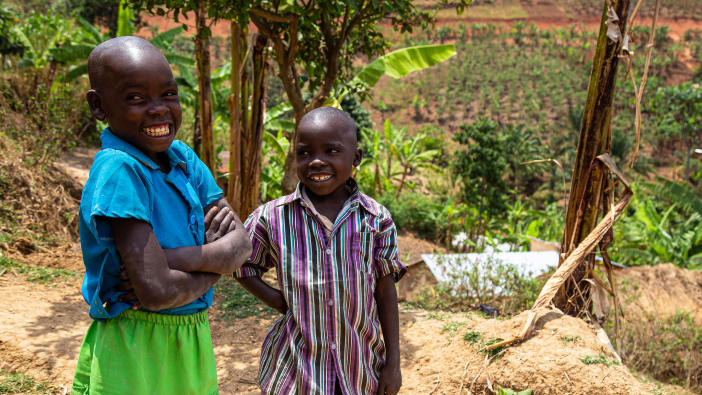Ethiopia on a knife edge – how you can pray for peace
Tearfund’s Emily Elliot talked to Ephraim Tsegay, Tearfund’s Country Director for Ethiopia, about the crisis.
Written by Tearfund | 20 Nov 2020



Written by
Written by Tearfund
Political tensions continue to escalate in Ethiopia, especially in the northern region of Tigray. There are reports of violence, including missile attacks. The UN says thousands of people have fled into neighbouring Sudan as the crisis worsens.
Tearfund’s Emily Elliot talked to Ephraim Tsegay, Tearfund’s Country Director for Ethiopia, about the crisis:
How concerned are you about what’s happening in Ethiopia at the moment?
It’s very sad. People are going hungry in Tigray and now with communication blackouts, road blockages and locust infestations, the situation will be worsening.
This is the time of year we expect to collect the harvest, but with the worst locust invasion that I have ever seen in my life, the need for humanitarian support will be massive. The army had been engaging with communities to try to eradicate the locusts before the war broke out. The locust invasion was already beyond the capacity of the community, and the escalation of the conflict puts us in a very difficult situation as a nation.
What are people's specific needs at the moment?
There are about 600,000 people in the Tigray region who urgently need food. Currently, with the conflict escalating, there is no access to the region and you cannot fly in or travel by road. You can imagine how people will be suffering.
If the fighting continues, it is likely to force thousands of Ethiopians living in the north to leave their homes for places like the Afar region. This is one of the driest regions in the country. People travel long distances in search of water in the Afar region, so with newly arrived migrants from Tigray, the meagre water resources are likely to be even more limited.
I’m particularly concerned for the young girls, lactating and pregnant mothers and women who are likely to be victims of the war and be displaced. When people are displaced they become vulnerable to abuse, especially girls and women.
How is Tearfund responding?
In this fast-developing crisis we are working with our local partners and churches on the ground to prioritise the most vulnerable people. We will offer psychological support, food and cash to people who have fled their homes. Post-conflict recovery is also very important – we will reach out to communities to restore businesses and means of making a living that have been lost because of the conflict.
What can we pray for?
As a country we are going through a very difficult situation. Please stand with us in prayer. I believe there will be a time where we will have peace, but we need the Lord to intervene at this time. We don’t want to see a prolonged war.
- Pray for the most vulnerable groups: girls, women, pregnant and lactating mothers, the elderly, and people with disabilities who will be in very difficult situations due to the ongoing conflict.
- Ask God to guide our country’s leaders. Pray that we can make wise decisions as a nation and protect civilians from this ongoing conflict and restore peace in the country.
- Lift up our partners who are working near to the regions where conflict is intensifying. Pray they may have the resources to provide help to people who have fled their homes.
Share this page
Share this page to spread the word and help support those in need.

Get our email updates
Learn about our work and stay in touch with Tearfund. Hear about our news, activities and appeals by email.
Sign up now - Get our email updates






